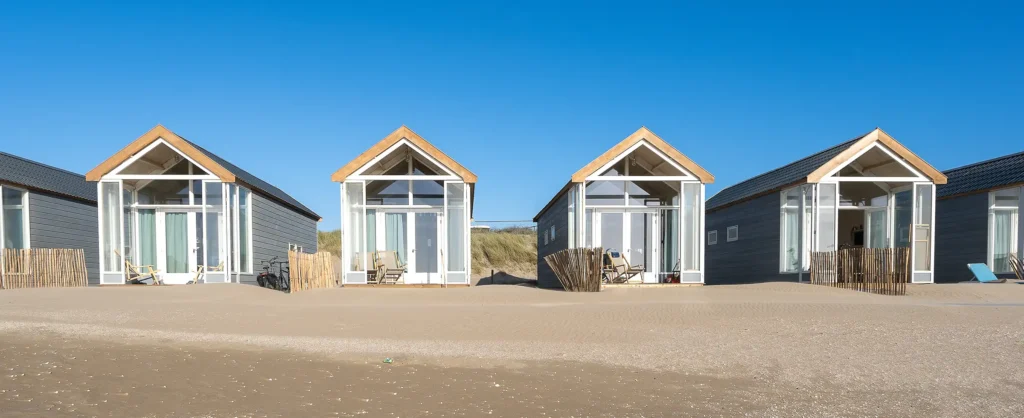As an industry estimated to cost the UK £357 million a year in housing benefits alone, adult social care and supported living are an increasingly essential part of public infrastructure. Providing an ageing population with the resources and assistance it needs to navigate a range of disabilities and special needs, supported living, as a branch of social housing, has been subject to growing demand over the past few years.
But, with the number of adults receiving long-term local authority support having decreased according to a 2024 NHS survey, there is a segment of the population in dire need of supported living assistance.
The social housing market is no stranger to private investment. A 2023 affordable housing market overview highlights that equity investment in affordable and social housing is on the rise, despite an otherwise challenging buy-to-let sector. For Profit Registered Providers of social housing in particular experienced a growth of 35% in their ownership of affordable homes since 2022.
As the social housing landscape changes in the aftermath of the General Election, what role will supported living play in Labour’s ambitious housebuilding targets? And how can private property investors capitalise on the unique ethical investment opportunity these homes offer?
The Urgent Demand for Supported Living
The demand for supported living that underscores its viability as an ethical investment opportunity is twofold.
As an ageing population with a growing number of people that will require greater availability of specialised care and housing over the coming years, the UK will need to significantly increase its capital funding to ensure an adequate level of supported housing for older adults. Considering older adults already make up 71% of units owned by social housing landlords, this is likely to represent a significant jump in housing supply.
Similarly, research by the Learning Disability and Autism Housing Network shows that the number of adults with disabilities and autistic people requiring supported living facilities will likely increase by almost 20,000 over the next 15 years. This growth will require the country to build anywhere between 1,800 and 2,300 new homes at a staggering cost of £304m a year.
On a wider scale, the estimated demand for specialised supported housing may increase dramatically in the run-up to 2027-28. By 2040, the National Housing Federation estimates that there could be 1.7 million people in the UK in need of supported housing. Development on these properties is expected to exceed costs of £33 billion. The potential impact of homelessness and lack of necessary care incurred by not building the necessary supply of homes, meanwhile, will most likely cost the country significantly more in the long run.
Why the UK Needs Social Housing Investors
Though social housing development has traditionally been the domain of the public sector, research found that only 13.5% of the 5,600 units of supported living homes delivered since April 2017 were the result of public capital funding. This not only highlights the existing importance of private capital from ethical investors to the market but also the scope for new investors to enter the supported living sector as it scales over the next several years.
More specifically, For Profit Registered Providers specialising in social housing have taken great strides towards bolstering the UK’s supply of supported living homes. According to research by the Learning Disability and Autism Housing Network, registered providers are currently responsible for at least 80% of the supported housing used by people with learning disabilities and autistic people.
This is largely due to the difficulties in securing capital grant funding and inflexible social housing rent standards, which forces private industry to “step up” to support the public sector. Analysis by the New Economics Foundation shows that public funding received hidden cuts totalling an estimated £22 billion in the Spring 2023 budget. These cuts are likely to intensify over the next few years, increasing the financial pressure on local government and housebuilding charities as they try to meet housebuilding targets.
Adding to the challenge of building supported living homes using public funding alone are the generally higher costs of supported social housing. Though partially due to the lack of public subsidy for those with supported living needs, the greater degree of adaptation and more frequent changes certain supported living households require also explains why initial costs dwarf those of traditional properties.
Despite these added expenses, supported living homes are still the most cost-effective approach to accommodating people who require specialised care. In the long-term, supported social housing costs less per week at £1,569 than registered care, which disability charity Mencap estimates to cost around £1,760 per week. While entering the sector can seem more daunting for individual investors, they may find themselves saving more in the long run by investing in supported social housing.
An Easier Approach to Supported Living with Concept Capital Group
At Concept Capital Group, we use modular construction over traditional construction to save on the costs associated with building supported living homes. By streamlining the housebuilding process with off-site manufacturing and sustainable building practices, we significantly expedite the time it takes to build tenant-ready social housing that can be customised to accommodate a range of disabilities and accessibility requirements.
Through modular homes, we show the potential of private ethical investment to address some of the most pressing challenges facing the UK housing market. Together with our clients, we create lasting social impact through ethical investment while securing consistent profitability with a highly accessible real asset that can easily fit within any portfolio while offering an all-inclusive solution to diversification and capital preservation needs.
For more information on our supported living services and how to invest in them, book a call with our team today.













